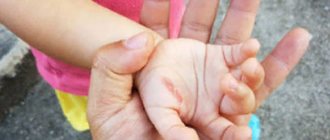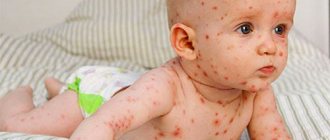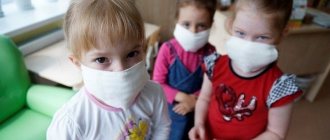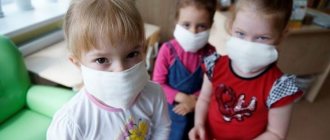1627
0
Chicken pox is a disease familiar to everyone since childhood. Our mothers and fathers, grandmothers and grandfathers had it; it seems that it is normal to have chickenpox. Not so long ago, some parents intentionally infected their child with chickenpox so that he would suffer this disease earlier, and therefore easier than in adulthood. This is quite logical and some doctors approve of this method. However, we live in the 21st century and today a vaccination against chickenpox has been developed for children and adults. Let's look into this issue.
A Brief Introduction to Chickenpox
Chickenpox or varicella is a common viral infection. This disease is provoked by the entry into the body of a virus of the third type, the herpes family, Varicella zoster. The susceptibility of a human individual to this virus is one hundred percent, which indicates the highly contagious nature of the infection. It should be added that the virus spreads through the air and is capable of “flying” up to 100 meters from the carrier. For these two reasons, most people get chickenpox in the first 20 years of their lives.
Most people treat chickenpox as a mild, harmless illness. In fact, chickenpox is very insidious in its manifestations. Patients with chickenpox in adulthood experience a severe form of the disease, as well as all kinds of complications, such as pneumonia, encephalitis, damage to the optic nerve, eye damage, cerebellar ataxia, and so on. Possible death. In childhood, chickenpox is often mild. However, to date, many cases of severe chickenpox and all sorts of complications have been recorded in children under one year of age. Just like in adults, death is possible.
The virus, after recovery, does not completely die, but settles in the cells of the nervous system, waiting for an opportunity. Immunity is actually developed by the body and prevents the virus from being active. But if the immune system has been weakened, rest assured that the virus will not “sleep.” This time it will manifest itself in the form of herpes zoster, which has a number of unpleasant characteristics: unilateral herpetiform skin rashes, accompanied by acute neurological pain syndrome.
Should you vaccinate your child against chickenpox?
So far, children are vaccinated against chickenpox exclusively on the initiative of parents. There is no such vaccination in the vaccination calendar. However, more and more doctors advise that it is better to think about vaccination against chickenpox than to suffer from this seemingly harmless disease.
What is the argument of vaccination supporters?
- Chickenpox can also occur in a complex form, with high fever, vomiting, aching joints, rashes, etc. The older the child, the more complex the disease.
- The disease virus remains in the body forever and, over the age of 40, can become the cause of extremely painful shingles in 15% of cases. When vaccinated, the virus does not enter the body and does not create such preconditions.
- Small so-called pockmarks may remain on the skin of a recovering child.
- Chickenpox can cause dangerous complications such as pneumonia or encephalitis.
- Chickenpox is deadly for children with immunodeficiency - those undergoing cancer treatment, those infected with HIV, or those with heart defects. For them, this disease can result in death.
All this can be avoided if you get vaccinated against chickenpox. The chickenpox vaccine is highly immunogenic. If the mother was vaccinated immediately before or during pregnancy, her antibodies will protect the newborn baby for up to 6 months.
If the vaccine was given before age 5, it protects 95% of all vaccinated children.
Of course, there is also the opposite point of view. As a rule, if a small child catches chickenpox, it will be easier to tolerate. In addition to the disadvantages, parents still have to buy the vaccine at their own expense.
Why the vaccine was developed and its principle of action
Back in the 70s, in Japan, a vaccine was developed to avoid infection with chickenpox and herpes zoster. In the mid-90s, vaccination reached a large-scale level in the USA, Japan, and several European countries. The name of the vaccine is Okavax and Varilrix. Our country uses Varilrix, developed and released in Belgium.
The principle of operation is simple. The vaccine is produced using an artificially grown VZV Oka strain modified through controlled reproduction. Simply put, the vaccine contains a weakened virus, which, when introduced into the body of a healthy person, begins to produce antibodies and create immunity to the Varicella zoster virus.
Adverse reactions
From the second to the third week after vaccination, delayed general reactions may appear; there is no need for special treatment, they go away on their own:
- slight increase in temperature;
- general malaise;
- rare rashes resembling chickenpox, accompanied by itching;
- enlarged lymph nodes.
Side effects:
- herpes zoster;
- brain inflammation;
- deterioration of sensitivity;
- decreased platelet levels;
- pain in large joints.
According to WHO, such manifestations occur in fifteen out of one million people. If you experience unfavorable symptoms, you should consult a doctor for help.
When are children vaccinated against chickenpox? There is no fundamental difference in age.
At what age can children be vaccinated against chickenpox? Taking into account the epidemiological situation in the country, the optimal age for administering the vaccine is 1-2 years.
How many times should I do it? When using the Varilrix vaccine, it is typical to administer 2 doses to children at intervals of 6-8 weeks; children under 13 years of age are vaccinated with 1 dose. A single dose is 0.5 ml. At the same time, active seroconversion (antibody production) is observed in 75 percent of vaccinated children after the first injection and in 98 percent after the second injection. Revaccination is carried out after 7-10 years.
How long does it last? As we said above, the vaccine provokes an immune response, as in chickenpox, but it has temporary limitations. When children aged 12 months to 12 years were vaccinated twice, antibody production was stable for at least 7 years. It is worth adding that with the same method of vaccination in children aged 13 years, the seroconversion rate was 100 percent, but it lasted much less - 1 year.
Timing of injections
Another popular question that interests parents on this topic is: “When do children get vaccinated against chickenpox?” Babies are vaccinated when they reach 12 months. There is no upper threshold for administering drugs; injections can be given at five, ten, and twenty years of age.
Children can be vaccinated against chickenpox after contact with a sick person. It is advisable to visit a specialist within three days after a possible infection, in which case the injections given will have maximum effectiveness. There is a significant chance that your child will be able to avoid the disease or survive it without any external manifestations or consequences.
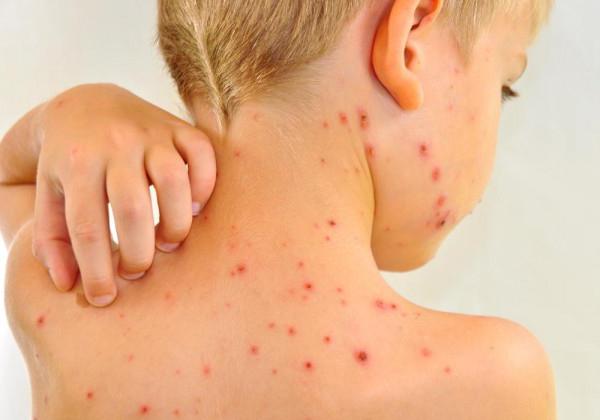
Post-vaccination reactions
Vaccination is usually easily tolerated, but not always. Some people have experienced local reactions to the vaccine (at the injection site): swelling, slight redness, pain. These manifestations disappear within 1-2 days. In addition to local manifestations, in very rare cases general reactions are observed: fever, characteristic rashes, itching, weakness. The listed consequences of vaccination are the body’s reaction to the virus, but they are rare and much easier to tolerate than chickenpox itself.
Should an adult be vaccinated if he was not vaccinated against chickenpox as a child?
If a person did not have chickenpox in childhood and did not receive a dose of the vaccine, then doctors recommend vaccination regardless of age.
The disease in adulthood is much more severe and threatens with serious complications. The chickenpox vaccination is mandatory for young people called up for military service (provided that they were not sick in childhood).
After vaccination, the patient experiences the following symptoms:
- slight increase in body temperature;
- joint pain;
- general malaise.
In some cases, a small rash appears on the body, which goes away without the use of medications. All of the above symptoms are considered a normal reaction of the body and indicate the development of immunity.
Contraindications
- Vaccination is contraindicated for people with acute illness or chronic pathology. In such cases, vaccination can be given only after complete recovery or achievement of stable remission. If you have a mild respiratory disease or intestinal infection, the vaccine is given after 2-4 weeks. In case of severe diseases of the nervous system, vaccination is carried out at least six months later;
- In case of severe immunodeficiency, vaccination is absolutely contraindicated;
- During pregnancy and breastfeeding. If vaccination has been performed, it is recommended to abstain from pregnancy for 3 months;
- Individual intolerance to the components of the drug or an allergic reaction;
- After an injection of immunoglobulin, it is recommended to refrain from vaccination for six months;
The above contraindications are absolute, but there are a number of health conditions in which vaccination is possible with proper medical supervision:
- Disorders of the heart, kidney, blood vessels, and liver systems;
- Pathology of the circulatory system;
- Allergy to other vaccines;
- Not severe immune system disorders;
- Suspicion of an allergic reaction to vaccine components;
Main contraindications
Now you know the answers to many questions about why the chickenpox vaccine is indicated for children, where to get the injection and what consequences may accompany the administration of the vaccine. It's time to talk about possible contraindications, conditions that make preventive injections impossible. So, vaccinations for children are not carried out if:
- Immunodeficiency.
- Acute leukemia.
- Elevated body temperature (from 37.5 and above).
- In acute viral diseases, as well as during the recovery period after them (from 2 to 4 weeks), depending on the severity of the disease, the rehabilitation period may be shortened.
- Diseases of the central nervous system, as well as the recovery period after them (up to 6 months, determined by a specialist).
- Acute stage of chronic disease.
- Surgical interventions planned in the near future or recently performed.
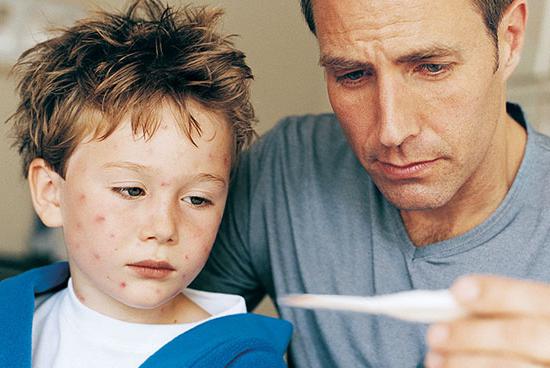
Reviews of chickenpox vaccination for children
Ekaterina, Moscow.
A girl in our group had chickenpox and was vaccinated. She endured this disease easily, but other children also endured it easily. And this girl will have to be vaccinated again in a few years, but the rest of the children do not need to. They have already developed immunity.
Maria, Perm.
We did this for our daughter about 3 and a half years ago. There were no side effects after the vaccine. After vaccination, we had several chances to become infected, but we remained healthy because the vaccine works. We installed Varilrix. The pediatrician told us that they are vaccinated 2 times, the second time after 7 years. After this, it is believed that immunity lasts for life, as if you had chickenpox. There is a lot of information on the forums about how children suffer from this disease, and I couldn’t help but be glad that I gave my daughter the vaccine.
Natalie, Yekaterinburg.
I vaccinated my eldest daughter when she was 6 years old. I never got sick, although I was in contact with people with chickenpox. And recently we returned to Greece with our son and decided to vaccinate him. In Greece, this vaccination is included in the list of mandatory vaccinations, and they give 2 doses: the first at 17 months, and the second at 2 years. Pediatricians consider this method of vaccination more effective.
Is it better to get vaccinated or get sick in childhood?
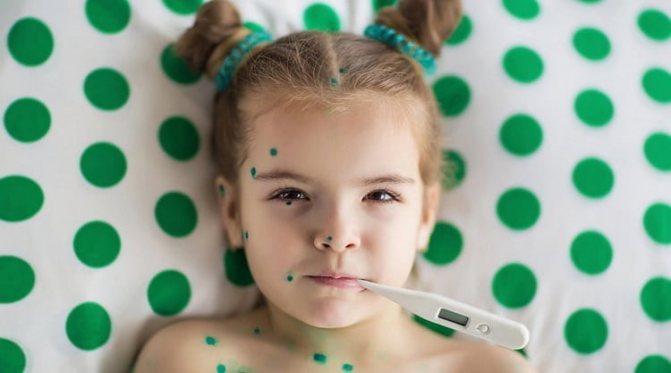
Many parents consider chickenpox to be a fairly harmless disease, and, indeed, in many cases it goes away without any complications or consequences. However, few people know that chickenpox can lead to diseases such as pneumonia, encephalitis, sepsis, hepatitis and others. In addition, it occurs differently in each child, and complications may occur in the form of a temperature of up to 40 degrees, severe vomiting and diarrhea, stomatitis, inflammation of the mucous membrane of the eyes, etc. After chickenpox at an early age, the child’s skin may scars and scars will remain forever. It is also worth noting that if you get this disease during pregnancy, it can provoke very serious consequences, ranging from developmental disorders to premature birth and antenatal fetal death.
However, there are a number of arguments that are not on the side of this vaccination. Firstly, vaccination against chickenpox, unfortunately, does not provide a 100% guarantee that the child will not get sick. Thus, although it is tiny, there is still a chance of getting sick after vaccination. Secondly, since this vaccination is not included in the mandatory vaccination calendar, it is carried out only on a paid basis, so the purchase and payment falls directly on the shoulders of the parents.
